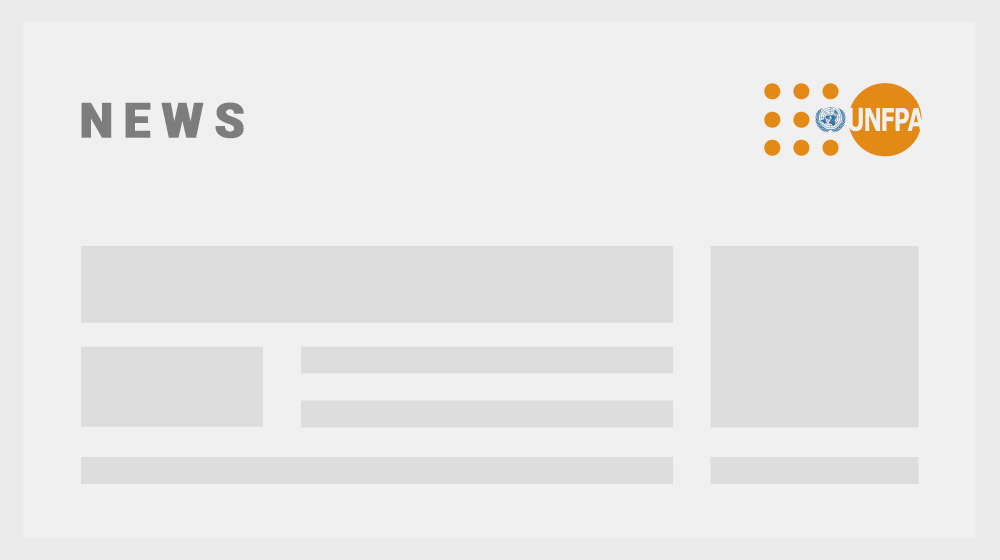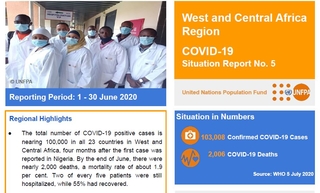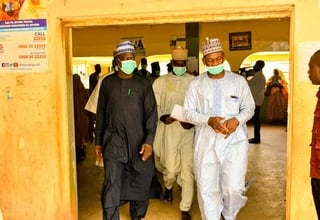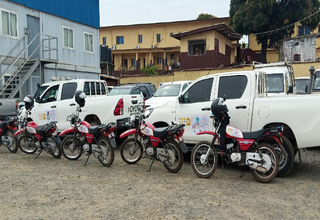
The Capacity for Disaster Reduction Initiative (CADRI) is a global partnership composed of 20 organizations including FAO, IOM, UNDP, UNICEF and UNFPA (executive partners), GNDR, IFRC, OCHA, UNESCO, UNOPS, WFP, WHO, WMO (technical partners) and GFDRR, OECD, ODI, RedR Australia, UNITAR, UNDRR, UN WOMEN (advisory partners).
The CADRI Partnership aims at contributing towards the achievement of the Sustainable Development Goals by providing countries with capacity development services to help them reduce climate and disaster risk. The CADRI Partnership provides countries with a mechanism to mobilize multi-disciplinary expertise in disaster risk reduction and climate change adaptation across a wide range of socio-economic sectors to strengthen risk information systems, prioritize risk reduction in national and local plans, and enhance preparedness systems.
In the West and Central Africa region, The CADRI Partnership is hosted by the Regional offices of FAO and IOM. UNFPA fully supports a people-centered approach and is committed to “leave no one behind” to achieve the SDGs. Essential to leaving no one behind and reaching the furthest first is the need for addressing crisis-related-risks systematically, vulnerabilities of communities especially women, girls and young people, strengthening resilience of national institutions, working more effectively in transition settings in order to sustain development gains. In line with the Sendai Framework, the four pillars of UNFPA's Humanitarian Results Framework, and the common UN system approach to climate change, UNFPA’s goals in DRR and climate change adaptation are to strengthen resilience of national health systems to recover and prepare for disasters, and to promote age and gender responsive programmes; develop capacity and advocate for sufficient resources to address the needs of women and girls; strengthening reproductive health, reproductive rights, and empowerment of women and young people to help them adapt to risks and meet the challenges of acute and long term changes to the climate; and support the generation and use of age, sex and spatially disaggregated data in disaster risk assessment and national statistics.
Specifically, UNFPA has defined four service lines to DRR by focusing on:
- Early warning, risk assessments and use of population data translated into effective and measurable early action and used as a baseline for humanitarian crisis and common operational data sets;
- National and sub-national preparedness and community capacity by strengthening communities’ safety nets to contribute to long-term improvements;
- Resilience-building of health systems focusing on continued access to quality sexual and reproductive health (SRH) care and services, especially on emergency obstetric care;
- Youth and gender response DRR and climate adaptation programmes.
Type of Experts to be deployed through CADRI: Population and Data Advisers, Preparedness Specialists, Sexual and Reproductive Health Advisers, and Gender Advisers with focus on Gender-Based Violence.
For more information on the CADRI Partnership please consult www.cadri.net or submit a query to: cadri.partnership@undp.org.
For more information on The CADRI Partnership work in the West and Central Africa Region please consult the following resources or submit a query to: cadri.partnership@undp.org
- The CADRI Partnership website
- Impact stories – A decade of capacity development services in disaster risk reduction
- Guinea brochure
- Cote d’Ivoire brochure
- CADRI annual report 2019
- CADRI flyer




